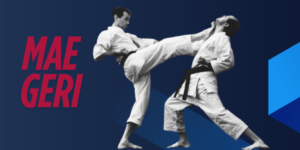So, you’re thinking about jumping into the world of Mixed Martial Arts (MMA)? That’s awesome!
MMA has become one of the most popular combat sports, with flashy shows and intense fighting.
But if you’re wondering where to begin or if it’s possible to start later in life, you’re not alone.
Many people have the same questions when considering getting involved in the sport.
Whether in your 20s, 30s, or beyond, there’s no age limit to pursuing your MMA dreams. But what exactly does it take to get started?
How do you go from a beginner to someone who can step into the cage and compete?
In this guide, I’ll explain everything you need to know, from choosing the right gym to understanding the training and even how to prepare for your first MMA tournament.
What Are the Key Steps to Start Training in MMA?
- Choose the Right Gym: Your first and most important step is to find a Gym that teaches MMA. Before starting your journey, Try to learn about the instructors and their martial arts backgrounds. They must have previous MMA experience and/or experience in multiple disciplines like Karate and BJJ.
- Start with the ABC: Before jumping straight into MMA, I recommend starting with the basics. For instance, if you have little or no experience in martial arts, try starting with boxing or BJJ.
- Build Your Fitness: MMA is physically demanding, so you’ll need to get in shape. Start working on your strength, stamina, flexibility, and endurance. Listen to your trainer, and do not skip the warmups, pushups, and all the hellish exercises.
- Stay Consistent: Like anything in life, consistency is key. You won’t become a skilled MMA fighter overnight and shouldn’t expect to. Dedicate yourself to regular training, keep learning, and be patient with the process.
Is It Too Late to Start MMA? Debunking Age Myths

Can You Start MMA at 20? 27? or Older?
One of the most common questions people have when considering MMA is, “Am I too old to start?”
The short answer? Absolutely not.
Age should never be a barrier to beginning your MMA journey. Many fighters started their training later in life and had successful careers.
The Truth About Starting MMA in Your 20s and 30s
While it’s true that many professional fighters start training at a young age, MMA is more accessible than ever, and age doesn’t necessarily determine how successful you can be.
Suppose you’re starting at 20 or 27. In that case, you’re actually in a great position—your body is still very adaptable, and you have enough time to gain experience and develop your skills.
For example, Randy Couture, a well-known UFC Hall of Famer, started his MMA career in his early 30s after a successful career in wrestling. He went on to become a two-time UFC champion!
Another example is Dan Henderson, who competed at the highest levels of MMA well into his 40s, becoming one of the most respected fighters in the sport. So, if you’re 20, 27, or older, don’t let age hold you back!
How Hard is MMA to Learn? Breaking Down the Difficulty

What Are the Key Skills You Need to Master?
MMA is a challenging sport; there is no denying it.
But just because it’s tough doesn’t mean it’s impossible to learn.
To get started, you will need to focus on mastering a few core areas:
Striking (Boxing and Muay Thai): If you look at MMA fights, You
Throwing clean punches, kicks, elbows, and knees is crucial for any MMA fighter. This is where boxing and Muay Thai come in. Learning to move, balance, and strike effectively is the foundation for stand-up fighting.
Grappling (Brazilian Jiu-Jitsu and Wrestling): Once you are comfortable striking, you must learn to take the fight to the ground and control your opponent. Brazilian Jiu-Jitsu (BJJ) is essential for submissions, while wrestling will help with takedowns and maintaining positions on the mat.
Cardio and Strength: MMA is physically demanding; without good cardio and strength, your ability to perform will suffer. Building your stamina and muscular endurance will help you survive longer rounds.
Mental Toughness and Strategy: MMA isn’t just about physical ability—it’s also a mental game. Fighters must be able to read their opponents, adapt to different situations, and stay calm and focused under staggering pressure. Developing your mental toughness will help you overcome challenges in training and in the cage.
How Long Does It Take to Get Good at MMA?
It’s impossible to give a precise timeline for how long it will take to become “”good”” at MMA because everyone progresses at their own pace.
However, from my experience, if you are entirely new to any combat sport, it will take at least 7-10 months of focused commitment to develop the necessary skills and conditioning for any amateur-level competitions.
Learning MMA is a long-term commitment. You won’t see overnight success, and that’s perfectly okay.
In fact, you’ll probably feel frustrated at times, but that’s just part of the process. The important thing is to stick with it.
Why MMA Is Hard to Learn, But Worth It
Multiple Disciplines: Unlike many other sports, MMA requires proficiency in multiple areas. You’re not just learning one martial art—you’re combining different ones to create a well-rounded skill set. This can be overwhelming for beginners, but with the right attitude, it’s absolutely achievable.
Physical and Mental Endurance: MMA fighters must be physically and mentally tough. Physically, you have to push your body to its limits in ways it has never been tested before. And when you are physically exhausted in a match, Your Mental endurance will keep you going.
MMA may seem difficult initially, but with the proper training, mindset, and patience, it’s possible to learn and even excel.
It’s a sport that demands hard work, but it also rewards you with the feeling of achievement and progress as you get better.
Now that we’ve talked about the difficulty of learning MMA, let’s explore how beginner-friendly the sport really is.
Is MMA Beginner-Friendly? How to Get Started as a Newcomer
So, you’re sold on learning MMA, but where do you begin?
When I started my journey, I wasn’t sure what to do or focus on. So here are some pre-steps you can take before starting your MMA training:
- Do Your Research: Before signing up, take some time to research gyms in your area. Look for places with qualified instructors with experience in martial arts, including striking (Muay Thai, boxing) and grappling (Brazilian Jiu-Jitsu, wrestling). Many Gyms offer special free classes, which is a great opportunity to understand the gym’s environment.
- Look for a Beginner-Friendly Environment: Some gyms are focused on producing players at the professional level, and some work with beginners and intermediate-level players. Before subscribing, Identify Which one you are going to. Because at the beginner level, you need more focus from your instructors.
- Don’t Be Afraid to Ask Questions about The Gym: When visiting a gym, don’t hesitate to ask questions about its training programs, schedule, and how it works with beginners. It may seem obvious, but many, like me, feel shy about asking such questions.
- Observe a Class: Watch a class before joining. This will give you a sense of the training environment, the level of instruction, and the kind of students that train there. Watching a class also helps you get comfortable with the gym before you step onto the mats.
Training for MMA: What to Focus on as a Beginner
Now that you’ve found the right gym, what should you focus on when you begin your MMA training?
It’s important not to get overwhelmed by the many different aspects of the sport. As a beginner, here are the key areas you should concentrate on:
- Focus on Fundamentals First: You can’t just jump into advanced moves right away. Start by learning the basic techniques of each discipline: basic punches and kicks from Muay Thai, fundamental submissions from Brazilian Jiu-Jitsu, and takedowns from wrestling.
- Build Conditioning Early: MMA is physically demanding, so conditioning is key. Strengthen your cardiovascular system with running, cycling, or swimming. Slowly increase your amount of exercise and include exercises like Squats, Jumping jacks, Lunges, and planks.
- Develop Your Mental Game: Mental conditioning is equally important for MMA. Try to set small goals, like doing 30 push-ups or 20 Burpresses, and try to achieve them. Set your goals higher and be consistent. Remember, it takes more time to mentally prepare for MMA than to physically prepare.
Should You Train in Multiple Disciplines?
As a beginner, it’s easy to feel you must master everything at once.
However, it’s important to remember that MMA combines different martial arts, so it’s not necessary to be perfect at everything from the start.
Initially, focus on learning the fundamentals of one discipline—such as striking or grappling—and gradually expand your skills from there.
Many fighters begin by learning Brazilian Jiu-Jitsu (BJJ) or Muay Thai before integrating other aspects of MMA into their training.
There’s no rush to be good at everything right away. Take it step by step, and your skills will improve over time.
Final Thoughts
There you have it, you will find everything you need to know to get started in MMA, from the training basics to stepping into the cage and competing.
Whether you’re 20 or 30, whether you’re worried about how hard it will be, or if you’re ready to fight, remember this: it’s never too late to start, and with the right mindset, consistency, and dedication, you can definitely succeed in MMA.
FAQ
Is MMA Hard to Learn for Beginners?
MMA can be challenging for beginners, but it’s also completely doable if you’re willing to do the work. Learning MMA is like learning any new skill—it takes time, patience, and consistency. The hardest part for beginners is usually getting used to the variety of techniques from different martial arts, such as striking, grappling, and submissions.
However, things will begin to click once you start focusing on the basics and building a strong foundation in one discipline (like boxing or Brazilian Jiu-Jitsu).
Can I Train MMA Part-Time While Working?
Yes, it’s definitely possible to train MMA part-time while working! Many fighters start off by training part-time, balancing their job and their MMA training.
The key is to make the most out of the time you do have to train.
Can guillotine choke be used in street fights?
Yes, a Guillotine choke can be effective in a street fight, especially if someone tries to tackle or take you down. By wrapping an arm around the opponent’s neck you can effectively counter their attack.
But, If there are multiple attackers or weapons involved, using a Guillotine choke might leave you vulnerable. Thats why the less you engaged in a street fight, the safer it will be for you.
You Might Also Like










